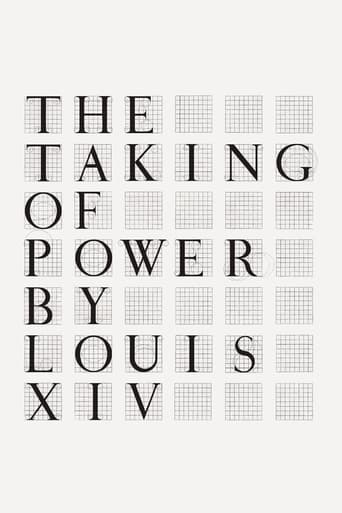unclepaulcwr
A short movie that does an excellent job in conveying the gestalt of one of the most important moments in modern (post-renaissance) French history: the events leading up to the building of Versailles. One understands The Sun King in his context: a man whose hold on his crown -- and his life -- was at first shaky at best. Louis is understood in the context of his greater 'family', in particular the unfortunate Stewarts on the other side of La Manche. Not wanting to be subject to the same fate as his uncle, Charles I (who, for those of you who don't know, was overthrown by his Parliament and nobles, and then beheaded by the fanatically Puritan Oliver Cromwell) Louis conceives of Versailles as essentially a pretty prison for the nobility: by mandating their attendance at court they cannot conspire to overthrow him. Moreover, he establishes absurd rituals of etiquette and ludicrous costumes (the male peruke (wig) was introduced at this time) in order keep them bankrupt attempting to stay on top of court fashions.
Daniel Hayes
I'm going to go ahead and make the rather bold statement that Rossellini's biographical films are the true end and completion of the project he started with the neo-realists. I do this in a rather roundabout way involving personalist philosophy and Andre Bazin, but what most interests me is where the other neo-realists ended up. Fellini found a strange hybrid with elementary surrealism, De Sica plunged into sentimentality, Visconti's outlook became increasingly epic and grandiose. But in Rossellini we arrive at pure personality, and pure reconciliation of physical circumstances and self-determination. It is apparent that this is not a typically exaggerated biography, but this is not mere truthfulness. It's all in the approach, and Rossellini understood this perfectly. The shots are very characteristic, and the sets have a low-budget, but Rossellini's vision is the dominant, and very welcome, force of the film.5 out of 5 - Essential
zetes
Lethargic minimalist film about Louis XIV's rise to power in the mid 17th Century. I suppose if I had a greater interest in the time period or historical characters, I wouldn't have been bored. Case in point, several months ago I saw another of Rossellini's biopics from the same period, Socrates (1970), and, as I am a classics scholar, I liked it very much. I know a lot about Socrates, but almost nothing about Louis XIV. Both are similar in style (although Louis has much less dialogue). I guess Rossellini's point was to subtract the usual pomp and circumstance that surrounds the European royalty of this historical period, depicting everything in a very realistic light. I think I can make at least two legitimate criticisms against this film: 1) I think it takes too long with the first act, the Cardinal's death. It takes more than a half an hour of a 100 minute film (actually, the Hen's Tooth video falls about 9 minutes short of that mark). We learn nothing much about what is actually going on during this half hour. 2) Jean-Marie Patte, who plays Louis XIV, seemed particularly passionless to me. I did like some parts, or at least I found them interesting. At one point, Louis designs his now-famous costume. He tells his subordinates that all nobles will be dressed in exactly the same way. In the following scene, they are. I also liked the meal scene, where we, as well as everyone else in his court, watch as patiently as possible as Louis eats course after course. The nobles in the court feign interest. What weird customs we humans have developed. I wouldn't suggest The Rise of Louis XIV unless you are interested in the period, or are a huge fan of Rossellini. 6/10.
jacksflicks
Apply cinema verité to an historical setting and You Are There. Rossellini succeeds in slowing the pace, but rather than making it feel slow, he makes it feel majestic, as it should be in a story about a king. Likewise, he makes the dialog conversational à la Hawks. The locations are authentic, as are the costumes and customs, thus completing the illusion.In Olivier's Henry V, we see how a one becomes a feudal king; in The Rise of Louis XIV, we see how one becomes a Sun King.



